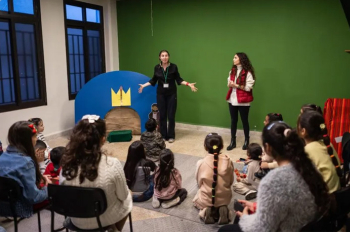
Two Christians who were released from prison in Iran in 2022 and 2023 respectively were re-arrested on Thursday (Feb. 6), advocacy group Article 18 reported.
Intelligence agents arrested Nasser Navard Gol-Tapeh and Joseph Shahbazian from their homes in Tehran Province and took them back to Tehran’s notorious Evin Prison, among other Christians arrested for their faith around the same time, the group reports.
Gol-Tapeh, 63, a convert from Islam, had been “pardoned” and released in October 2022 after serving nearly five years of a 10-year sentence on charges deemed “actions against national security” due to involvement in a house church.
“Nasser is apparently refusing to eat in protest at his unlawful re-arrest, while Article18’s sources report that a number of other Tehran Christians were also arrested at the same time and remain in custody,” Article 18 reported.
Shahbazian, a 60-year-old Iranian-Armenian, had spent just over a year at Evin Prison on similar charges before he was “pardoned” and freed in September 2023. Armenian churches are legal in Iran, and his arrest and re-arrest showed that no Christian is safe in the country, Article 18 stated.
“Both groups remain potential targets of the Iranian authorities,” the group reported. “Indeed, as Article18’s new annual report shows, any Christians considered ‘unaligned’ with the goals of the Islamic Republic can face arrest and imprisonment on ‘security’ charges.”

The annual report, presented at the United Nations in Geneva last month, called on Iranian authorities to “end the criminalization of house-church organization and membership,” and asked for clarity on “where Persian-speaking Christians may worship freely in their mother tongue, without fear of arrest and prosecution.”
A third recommendation called on Iranian authorities to drop all charges against Christians related to church activities that the Iranian Supreme Court had ruled were lawful, a reference to a 2021 ruling in Tehran clarifying that involvement in house churches or even the propagation of what was labeled “evangelical Zionist sects” should not be considered an “action against national security.”
Reasons for the re-arrests of Gol-Tapeh and Shabazian were unclear. During his five years in prison, Gol-Tapeh had filed several requests for a retrial or parole and wrote numerous open letters asking how membership in a house church constituted an “action against national security,” according to Article 18.
His release came two days after a fire spread chaos at the prison, claiming the lives of at least four prisoners, triggering gunfire and projectiles that were hurled into the facility from the outside. It was not clear whether the fire was linked to release of Gol-Tapeh, who suffered several health problems during incarceration.
“Nasser was arbitrarily arrested and detained, falsely charged, unjustly imprisoned for almost five years, and inhumanely refused a chance for retrial, furlough and medical attention,” Article18 Director Mansour Borji said after his release in 2022.
Shahbazian had initially received a 10-year-sentence for holding church services in his home, which was reduced to two years in May 2023. He was denied medical treatment for an illness for several months, and even after receiving a diagnosis was not informed of it, according to Article 18.
He had decided not to apply for a conditional release as doing so would involve pledging not to engage in the activities for which he was first arrested – organizing and hosting house-church meetings with Christian converts, Article 18 stated.
“Iranians from Armenian and Assyrian families are permitted a degree of freedom to worship – in their own languages – but churches that offered services in the Persian language have been systematically closed over the past 15 years,” Article 18 reported. “As a result, Iranians who wish to worship in the national language of Persian – whether converts, Armenians, or Assyrians – have no place to worship.”
The church closures led to the rise of the private worship meetings in homes such as Shabazian’s, the group stated.
“But these have been outlawed by the Iranian authorities and referred to as ‘enemy groups,’ and members systematically arrested and imprisoned on charges of ‘acting against national security,’” Article 18 reported.
Iran ranked ninth on Christian support organization Open Doors’ 2025 World Watch List (WWL) of the 50 countries where it is most difficult to be a Christian. The report noted that despite persecution, “the church in Iran is growing steadily.”





